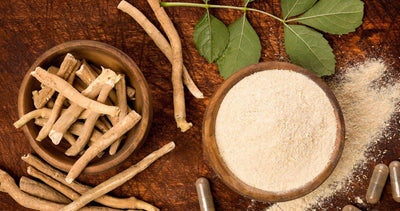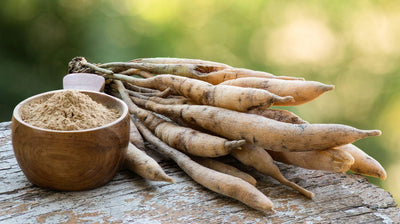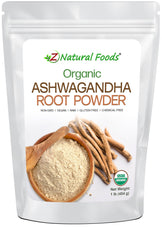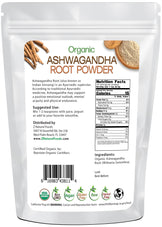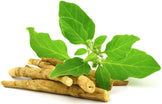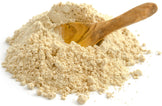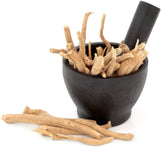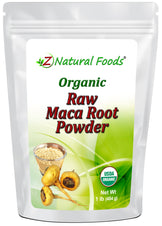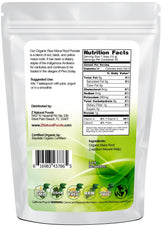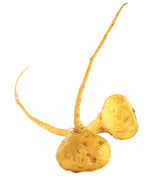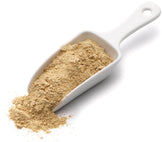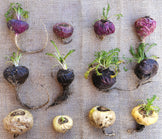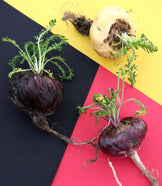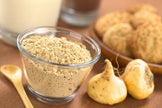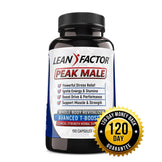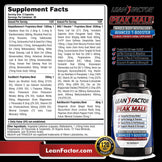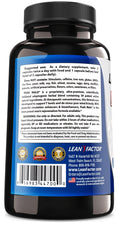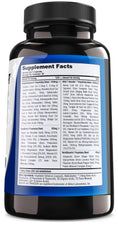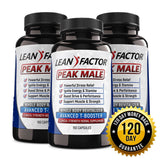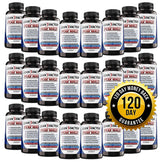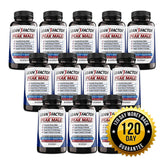Description
Description
One common question I get in regards to herbs is their relationship to
specific gender-based conditions
Truth be told, there really is no whole herb, specific for one gender over another.
There are three areas this article is going to cover to help you understand why herbs have gender-specific effects but can also be safely used for both genders.
1) The preparation
Herbal medicines come in many different preparations, such as:
- capsule
- tablets
- tincture
- tea
- powder
Within these
Finally, there are several types of end-product extractions like full-spectrum standardized, isolate standardized and whole-herb extract. The specific preparation can have a profound effect on what an herbal preparation is used for and specifically which gender may gain greater benefit.
It is very common that an isolated standardized herbal preparation is the first line of defense to support gender-specific issues. This form of extraction is making the herb into (for a lack of better terms) a drug. Using this type of extract provides a targeted approach because it isolates and concentrates specific compounds in the herb (so they are much higher than all other constituents).
The purpose is to get a specific response. It is commonly known among herbalists that you can target your approach based on the part of the plant being used. This is because different compounds are found in different parts of the plant and the form of extraction such as water vs alcohol-soluble compounds. This is why you see many variations of the same herb in the market-place.
A great example of gender-based herbalism is the herb: black cohosh.
To show a technical example, when you use an
I know exactly what you must be thinking. At the beginning of this article, I made the blunt statement, “There is no such thing as a gender-specific herb”.
If you can just hold your horses, I am getting to the good part. The response the human body has to the whole black cohosh root is very different than its response to the standardized isolate version. Not only can the whole herb be used by both genders, but it has traditionally been used by both genders as a nerve tonic.
How can an herb that is specific to estrogen modulation be used by a man?
The answer lies in the balance of the compounds in the herb.
With an herb in its whole state, everything is in perfect proportion just as nature intended. Therefore, the response by the human body is more like a “tonic”. As you have learned from my previous articles, tonics help to support and balance a weakened area. This is why, when you look at old herbal texts, both black and blue cohosh are very commonly found in nerve tonic formulas.
Another great example is the herb Saw Palmetto, which is traditionally taken by men.
When Saw Palmetto is taken as an isolated preparation (standardized to 85% free fatty acids and sterols), it has been shown to be very effective for supporting prostate health. When used as the whole herb, women who have naturally higher testosterone levels may be able to support the potential downfalls by nourishing their body with a whole herb preparation of Saw Palmetto.
- When you have hundreds of compounds found in a plant, they work together synergistically to provide a balanced effect.
- When you isolate and concentrate one of the compounds or family of compounds, it can dominate the effects of the overall preparation, so you end up with a different result.
This is why, when you use an isolated standardized preparation because it has a more targeted “drug-like” effect, you must be more specific with the dosage.
2) The Formula
The basis of an herbal formulation is to bring together three categories of herbs (lead herbs, supportive herbs, and circulatory herbs) in order to bring support to a specific system. A good herbalist uses all three of these categories because they understand that no one system works alone and by supporting other systems there is a direct effect on the primary targeted system. This aspect is vital to the overall process. With all of that said, you may be wondering how a formula can use herbs for both genders but still target only one of gender.
In fact, when you read herbal product labels for male and female libido, many of the herbs are the same with two main differences
- The order of the herbs in the formula, and
- The supportive herbs being used.
In many cases (especially with proprietary blends) unless otherwise noted, the order from top to bottom usually indicates what herbs are in the highest amount in the formula. The order is important to support specific gender issues. What is even more important is understanding which systems need to be supported in order to get that targeted result.
For example, in male and female libido formulations it is very common to see Maca root, Ashwagandha, Tongkat Ali, and Muira Puama.
These are often used as the lead herbs, but it is the supporting herbs that really differentiate the formulas. The reason is low libido for men and women can have very different causes. Because a woman is estrogen dominant there is a greater emotional connection to the underlying cause. Therefore, by using herbs that support emotional balance like
On the opposite side, perhaps a male formula supporting herbs would
3) Gender-based responses to herbs
This is my
Is it possible that both men and women can use an herb such as maca root and get profoundly different effects?
Unlike what some may believe, it is not the herb which people are responding to differently. The big surprise is they are not getting different effects. The key to each gender’s response is the manifestation of the stress response based on their gender and inherent weakness.
The reality is: Maca root is doing exactly the same thing in both the male and female body.
It is simply supporting and nourishing the body to encourage a healthy stress response. This balanced and healthy stress response keeps everything in check regardless of gender. Even though both men and women initially respond to stress
With men being testosterone dominant and women being estrogen dominant, the effects of increased cortisol produces a chain reaction that has an effect directly on all glands which are major hormone producers in the body. In simple terms, maca (or any herb used in this situation) will have what you would call an indirect effect on the gender-specific response to the stressor.
By supporting the body to have a healthy stress response, the body was able to bring everything back into check which affected all aspects of the chain reaction.
The take-home message is to understand that:
While we are all different based on gender and inherent weaknesses, the causes of our imbalances come down to chronic stress and the effects that the stress response has on us.
So, is there such thing as a gender-based herb or formula?
No.
About Michael Stuchiner
 Michael Stuchiner is an experienced Master Herbalist, the Head of Education for Z Natural Foods, a teacher
Michael Stuchiner is an experienced Master Herbalist, the Head of Education for Z Natural Foods, a teacher
As an “in-the-trenches” herbalist, Mike has done more than 85 speaking engagements, consulted with clients ranging from young to elderly, worked with athletes in virtually all sports and with clients who have “dis-ease” states of a wide variety. Mike also mentors student Master Herbalists and will continue to teach the next generation to grow a deeper wisdom of the human body through appropriate herbal remedies.
For Bulk inquiries and custom formulations click here: https://www.znaturalfoods.com/pages/bulk
